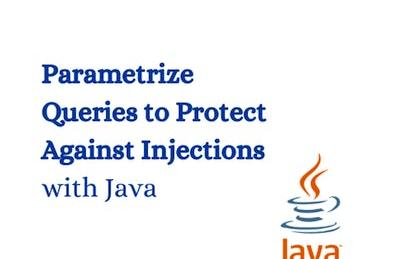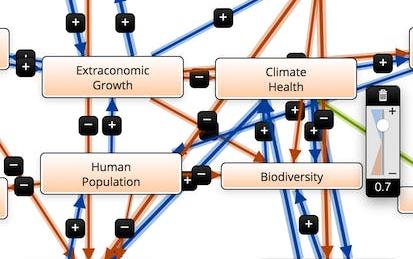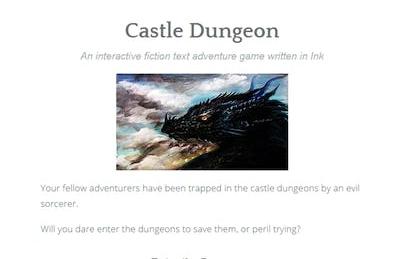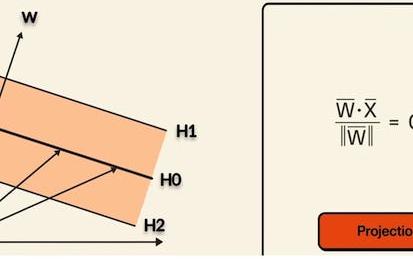

Our Courses

Parametrize Queries to Protect Against Injections with Java
By the end of this project you will be able to build a simple PostgreSQL database, we will interact with this simple database by creating a simple Java application that will use parameterized queries so as to prevent SQL injection attacks by using various well known methods that are widely used in the industry to protect against SQL injection attacks.
-
Course by

-
 Self Paced
Self Paced
-
 3 hours
3 hours
-
 English
English

Human Predicament Complex Modeling
The convergence of different crises pressuring the world today is probably one of the most complex human-made phenomena we can observe.
-
Course by

-
 Self Paced
Self Paced
-
 3 hours
3 hours
-
 English
English

Reimagining Blackness and Architecture
Architecture structures our daily lives. It shapes our homes, streets, neighborhoods, cities, and more. But who gets to create and occupy these spaces? In the United States, a long history of anti-Black racism has erased the stories of Black architects and communities and created spatial inequalities that are built into the physical environment. Reimagining Blackness and Architecture explores the relationship between architecture and Blackness as an identity and a lived experience.
-
Course by

-
 Self Paced
Self Paced
-
 14 hours
14 hours
-
 English
English

Leadership focused on Human Flourishing
It describes the elements of the Leadership model oriented towards human flourishing, in order to develop leaders who achieve better results. We are facing a world leadership crisis, due to (among other factors) the volatile, uncertain, complex, and ambiguous context we are living in. The world needs self-aware leaders who are also aware of their environment, immersed in a permanent learning process, who are committed, resilient, with a positive vision of the present and the future, who find meaning in their life mission, and who flourish by contributing to the flourishing of others. This c
-
Course by

-
 Self Paced
Self Paced
-
 25 hours
25 hours
-
 English
English

How to do a live broadcast on Facebook
In this project, the learner will build a client profile, master Facebook groups netiquette, and utilize them as a Marketing tool. We will learn how to generate clients using a free organic method without paid advertising. By the end of this project we will construct a step by step daily Facebook group action plan to promote a small business, and develop a strong influential Facebook account to attract high paying clients. Note: This course works best for learners who are based in the North America region. We’re currently working on providing the same experience in other regions.
-
Course by

-
 Self Paced
Self Paced
-
 3 hours
3 hours
-
 English
English

IBM COBOL Core
COBOL is a programming language that serves a wide range of businesses. Key aspects of COBOL are that it is scalable, mature, and self-documenting. In this COBOL CORE class you’ll discover more features of the language, how to handle tables, edit, use switches, numeric usage, and structured COBOL. Enjoy your ride through the world of COBOL! We’re excited to have you here and can’t wait to get started.
-
Course by

-
 Self Paced
Self Paced
-
 11 hours
11 hours
-
 English
English

Teaching Texts and Forms
The first job of any writer is to get words down on paper, and teaching writing as process helps students gain the fluency, comfort and confidence they need to succeed at any writing task. But complex, comprehensive writing tasks often bring with them specific expectations and conventions the writer must address to be successful. This course will examine some of those more comprehensive writing tasks: personal essays; argument, analysis and other forms of transactional writing; and creative writing.
-
Course by

-
 Self Paced
Self Paced
-
 21 hours
21 hours
-
 English
English

Find a job and submit proposal in Upwork
In this project, learners will know how to find a job and submit a proposal in Upwork as a freelancer.
-
Course by

-
 Self Paced
Self Paced
-
 4 hours
4 hours
-
 English
English

Create a text adventure game with Ink
In this 1-hour long project-based course, you will learn how to develop a text adventure game with Ink, the fundamentals of this narrative scripting language, creating dynamic content for a fully interactive text-based adventure with illustrations.
-
Course by

-
 Self Paced
Self Paced
-
 2 hours
2 hours
-
 English
English

SVM Regression, prediction and losses
In this 1-hour long project-based course, you will learn how to Train SVM regression model- with large & small margin, second degree polynomial kernel, make prediction using Linear SVM classifier; how a small weight vector results in a large margin? and finally pictorial representation for Hinge loss.
-
Course by

-
 Self Paced
Self Paced
-
 2 hours
2 hours
-
 English
English

Use Google Forms with Google Sheets
This is a self-paced lab that takes place in the Google Cloud console. Google Forms enables users to easily create and share online forms and surveys, and analyze responses in real-time.
-
Course by

-
 Self Paced
Self Paced
-
 1 hour
1 hour
-
 English
English

Understanding, Using, and Securing Crypto and Digital Assets
This specialization offers the latest developments in blockchain technology through a highly engaging learning experience with animated video components and intuitive course flow to maximize your knowledge retention.
-
Course by

-
 Self Paced
Self Paced
-
 3 hours
3 hours
-
 English
English

Deploy Microservices using Spring Cloud Framework
By the end of this project you will use the Spring Cloud Framework to deploy a pair of microservices that will be used to inject random numbers into math quiz questions.
-
Course by

-
 Self Paced
Self Paced
-
 2 hours
2 hours
-
 English
English

Data Visualization Capstone
Data visualization is a critical skill for anyone that routinely using quantitative data in his or her work - which is to say that data visualization is a tool that almost every worker needs today. One of the critical tools for data visualization today is the R statistical programming language. Especially in conjunction with the tidyverse software packages, R has become an extremely powerful and flexible platform for making figures, tables, and reproducible reports.
-
Course by

-
 Self Paced
Self Paced
-
 22 hours
22 hours
-
 English
English

Ancient Philosophy: Plato & His Predecessors
What is philosophy? How does it differ from science, religion, and other modes of human discourse? This course traces the origins of philosophy in the Western tradition in the thinkers of Ancient Greece. We begin with the Presocratic natural philosophers who were active in Ionia in the 6th century BCE and are also credited with being the first scientists. Thales, Anaximander, and Anaximines made bold proposals about the ultimate constituents of reality, while Heraclitus insisted that there is an underlying order to the changing world.
-
Course by

-
 Self Paced
Self Paced
-
 13 hours
13 hours
-
 English
English

More on Change and Sustainability
This is Class 2 of the MOOC Specialization, Become a Sustainable Business Change Agent. In this class you will learn more change agent skills and hear from people who have made changes in their organizations. You will also learn more about green design and sustainability reporting. The skills from this class will help improve products and services in your company or help the company issue its first, or an improved sustainability report.
-
Course by

-
 Self Paced
Self Paced
-
 13 hours
13 hours
-
 English
English

Build a Chat UI application using CSS3 Flexbox
This project will teach you how to design and build chat UI application using CSS3 Flexbox and you will explore some Flexbox playgrounds and will also see the differences between Flexbox and CSS Grid which can be helpful on to decide which layout to chose while building modern web layouts.
-
Course by

-
 Self Paced
Self Paced
-
 3 hours
3 hours
-
 English
English

Transformer Models and BERT Model - Bahasa Indonesia
Kursus ini memperkenalkan Anda pada arsitektur Transformer dan model Representasi Encoder Dua Arah dari Transformer (Bidirectional Encoder Representations from Transformers atau BERT). Anda akan belajar tentang komponen utama arsitektur Transformer, seperti mekanisme self-attention, dan cara penggunaannya untuk membangun model BERT. Anda juga akan belajar tentang berbagai tugas yang dapat memanfaatkan BERT, seperti klasifikasi teks, menjawab pertanyaan, dan inferensi natural language. Kursus ini diperkirakan memakan waktu sekitar 45 menit untuk menyelesaikannya.
-
Course by

-
 Self Paced
Self Paced
-
 1 hour
1 hour
-
 English
English

Inquiries Into Bipedalism
This course will help you learn that the shapes of bones reflect adaptations and the behaviors that animals frequently participate in. Understanding this relationship is critical for reconstructing the activities of animals in the past. In this course, you will participate in two such activities. You will examine the femurs from a number of different species. You will also explore how footprint data is used to estimate the height of a species. You will participate in a dig at the Koobi Fora fossil site in Kenya.
-
Course by

-
 Self Paced
Self Paced
-
 15 hours
15 hours
-
 English
English

Create Immediate Digital Employee Feedback with SnapEval
In this 2-hour long project-based course, you will learn how to produce immediate digital employee communication, a SNAP, to provide immediate digital feedback and lay the foundation for future annual employee evaluations. You will learn how to establish employee goals and achievement levels and how to provide employees with this information in a digital format.
-
Course by

-
 Self Paced
Self Paced
-
 2 hours
2 hours
-
 English
English

Building RESTful APIs with Node.js and Express
This course will teach you how to build RESTful APIs using Node.js and Express, two popular and widely used technologies in web development. You will learn how to create a server-side application that can handle requests from client-side applications and respond with JSON data. In the first module, participants will delve into the world of Node.js and Express, learning how to set up a development environment, explore the architecture of Node.js, and work with built-in modules.
-
Course by

-
 Self Paced
Self Paced
-
 14 hours
14 hours
-
 English
English

Google Drive
Google Drive is Google’s cloud-based file storage service. Google Drive lets you keep all your work in one place, view different file formats without the need for additional software, and access your files from any device. In this course, you will learn how to navigate your Google Drive. You will learn how to upload files and folders and how to work across file types. You will also learn how you can easily view, arrange, organize, modify, and remove files in Google Drive. Google Drive includes shared drives. You can use shared drives to store, search, and access files with a team.
-
Course by

-
 Self Paced
Self Paced
-
 3 hours
3 hours
-
 English
English

Data for Machine Learning
This course is all about data and how it is critical to the success of your applied machine learning model.
-
Course by

-
 Self Paced
Self Paced
-
 12 hours
12 hours
-
 English
English

Modularizing LookML Code with Extends
This is a Google Cloud Self-Paced Lab. In this lab, you will learn how to modularize LookML code with Extends.
-
Course by

-
 Self Paced
Self Paced
-
 1 hour
1 hour
-
 English
English

Team Management for the 6 σ Black Belt
This course is designed for professionals interested in learning the principles of Lean Sigma, the DMAIC process and DFSS. This course is number 2 of 8 in this specialization dealing with topics in Team Management Professionals with some completed coursework in statistics and a desire to drive continuous improvement within their organizations would find this course and the others in this specialization appealing. Method of assessment consists of several formative and summative quizzes and a multi-part peer reviewed project completion regiment.
-
Course by

-
 Self Paced
Self Paced
-
 English
English



